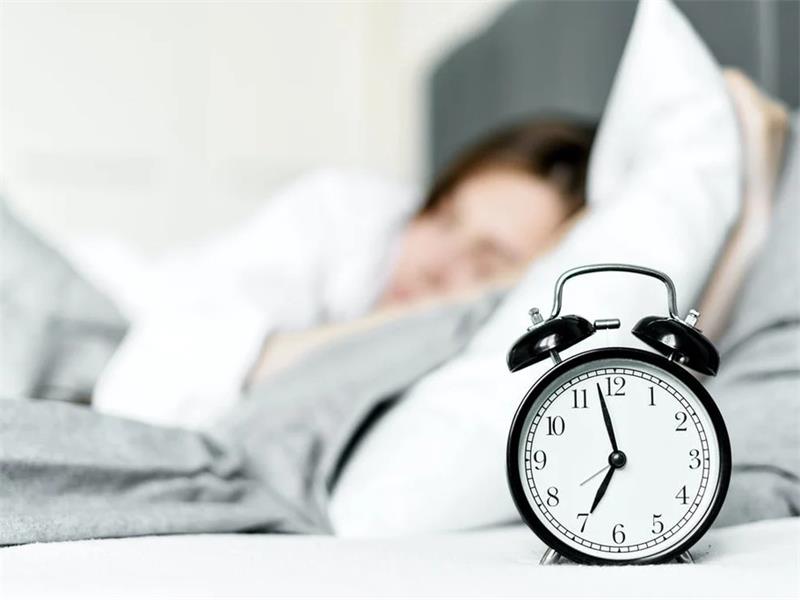Contents
- 1 The Caffeine Craze: A Brief Overview
- 2 Thesis Statement: The Good and Bad Effects of Caffeine
- 3 The Positive Effects of Caffeine
- 4 Negative Effects of Caffeine
- 5 How Caffeine Affects Your Brain
- 6 How Caffeine Affects Your Body
- 7 Factors That Influence Caffeine’s Effects
- 8 Rarely Known Facts About Caffeine
- 9 Conclusion
The Caffeine Craze: A Brief Overview
Caffeine is a naturally occurring stimulant found in numerous foods and beverages. It’s consumed daily by millions of people around the world for various reasons, such as staying alert or waking up in the morning. Coffee, tea, soda, energy drinks, and chocolate are some of the most commonly known sources of caffeine.
According to a study by the International Food Information Council Foundation (IFIC), over 80% of adults in the United States consume caffeine daily. The average adult consumes about 200-300mg of caffeine per day, depending on their source of consumption.
Thesis Statement: The Good and Bad Effects of Caffeine
Caffeine has both positive and negative effects on the body and mind. While it can provide an instant alertness boost and improve physical performance, it can also disrupt sleep patterns and cause anxiety or jitters.
The effects vary from person to person based on factors such as genetics, tolerance levels, age, sex, and weight The purpose of this article is to dive deeper into how caffeine affects our bodies and minds.
We’ll cover both the good and bad effects that come with consuming caffeine regularly. Let’s take a closer look!
The Positive Effects of Caffeine
Increased Alertness and Concentration
Do you ever feel groggy or unfocused when you first wake up in the morning or after lunch? A cup of coffee or tea might be just the thing to get your brain firing on all cylinders. Caffeine is known to stimulate the central nervous system, leading to increased alertness and improved cognitive function.
It can also help you concentrate better by blocking adenosine receptors, which are responsible for making you feel drowsy. Studies have shown that caffeine can improve reaction time, logical reasoning, and memory retention.
In fact, some people swear by a cup of coffee before a big exam or presentation to give them an extra edge. So next time you’re feeling mentally sluggish, consider reaching for a caffeinated beverage instead of a sugary snack.
Boost in Energy Levels
Another key benefit of caffeine is its ability to boost energy levels. When consumed in moderate amounts (around 200-400 milligrams per day), caffeine can provide a quick burst of energy that can help you power through your day. This is because caffeine stimulates the release of adrenaline and dopamine – two hormones that are associated with feelings of happiness and motivation.
Coffee is perhaps the most popular way to consume caffeine for this reason – it’s seen as a “pick-me-up” that helps people tackle their daily tasks with greater ease. However, it’s worth noting that too much caffeine (or consuming it too late in the day) can actually have the opposite effect and lead to feelings of agitation or insomnia.
Improved Physical Performance
Caffeine isn’t just good for your brain – it can also benefit your body. Many athletes rely on caffeine as an ergogenic aid (i.e., something that enhances physical performance) because it has been shown to increase endurance and reduce fatigue.
This is because caffeine can improve muscle contractility, allowing you to work out harder and for longer periods of time. Additionally, caffeine has been linked to improved metabolic rates and fat oxidation – essentially meaning that it can help you burn more calories during exercise.
Some studies have even suggested that consuming caffeine before a workout can lead to faster recovery times and reduced muscle soreness afterward. So if you’re looking to boost your physical performance, consider adding a cup of coffee or tea to your pre-workout routine.
Negative Effects of Caffeine
Disrupts Sleep Patterns: The Vicious Cycle
While caffeine is known for its ability to keep you awake and alert, it can also disrupt your sleep patterns. This is because caffeine blocks adenosine receptors in the brain, which are responsible for promoting sleepiness. As a result, consuming caffeine before bedtime can make it more difficult to fall asleep and may lead to poor quality of sleep.
This can create a vicious cycle where you consume more caffeine during the day to combat fatigue caused by a lack of sleep. However, this only exacerbates the issue and makes it harder to get quality rest at night.
Can Cause Anxiety or Jitters: Know Your Limits
Another negative effect of caffeine is that it can cause anxiety or jitters. This is because caffeine increases levels of adrenaline in the body, which can lead to feelings of nervousness or restlessness. However, not everyone experiences these effects and their severity may depend on tolerance levels and how much caffeine is consumed.
It’s important to know your limits and recognize when you may be consuming too much caffeine for your body’s individual needs. If you do experience anxiety or jitters after consuming caffeine, consider cutting back on your intake or switching to decaf options.
May Lead to Dehydration: Drink Up!
Caffeine is also a diuretic, meaning that it increases urine output and can lead to dehydration if not properly balanced with water intake. This effect may be more pronounced in individuals who are not accustomed to regular consumption of caffeinated beverages.
To combat this potential negative effect, make sure to hydrate throughout the day with water as well as other fluids like herbal tea or fresh juice. Additionally, incorporating hydrating foods like watermelon or cucumber into your diet can help maintain optimal hydration levels even when consuming caffeine.
How Caffeine Affects Your Brain
Caffeine is a stimulant that affects the central nervous system, which is why it’s able to increase your alertness and concentration. When you consume caffeine, it travels to your brain and blocks the receptors for adenosine.
Adenosine is a neurotransmitter that builds up in your brain throughout the day, making you feel tired and sleepy. By blocking these receptors, caffeine prevents adenosine from binding to them, resulting in a feeling of wakefulness.
Caffeine can also enhance mood and cognitive function by increasing the levels of dopamine and norepinephrine in your brain. Dopamine is known as the “pleasure chemical” because it’s responsible for feelings of reward and motivation.
Norepinephrine is essential for maintaining attention and focus. As a result, caffeine can help improve your mood and cognitive performance.
Additionally, caffeine can increase blood flow to the brain, which may improve certain aspects of cognitive function like memory formation. However, it’s important to note that these effects vary between individuals based on factors like genetic makeup and tolerance levels.
The Science Behind Adenosine Receptors
Adenosine receptors are an important part of our body’s natural sleep cycle since they’re responsible for signaling when we need rest. When adenosine binds to these receptors in the brain, it encourages relaxation and promotes sleepiness. Caffeine works by blocking these receptors so that adenosine can’t bind to them effectively.
This leads to an increase in neural activity throughout different regions of the brain that are associated with arousal or wakefulness. However, over time our brains will adapt by producing more adenosine receptors so that they become less sensitive to caffeine consumption – this explains why regular coffee drinkers often need more than one cup per day.
The Emotional Effects
In addition to its cognitive effects, caffeine can also have emotional effects. Consuming caffeine has been shown to increase feelings of alertness and stimulation, as well as reduce feelings of fatigue and boredom.
However, consuming too much caffeine can lead to increased anxiety and jitteriness. This is because caffeine increases the levels of the stress hormone cortisol in your body, which can cause feelings of nervousness or restlessness.
It’s important to note that the emotional effects of caffeine vary between individuals based on factors like genetics and tolerance levels. Some people may be more sensitive to caffeine’s effects than others, while others may not experience any noticeable changes at all.
How Caffeine Affects Your Body
Drinking coffee or tea is a morning ritual for many of us. We rely on caffeine to help us through the day, but what happens after we ingest it? Caffeine affects your body in several ways, including increasing heart rate and blood pressure, causing muscles to contract more forcefully, and leading to increased urine output.
Increases Heart Rate and Blood Pressure
Caffeine stimulates the central nervous system, which causes an increase in heart rate and blood pressure. This is due to the fact that caffeine blocks adenosine receptors in your body.
Adenosine acts like a sedative and slows down nerve activity. When you consume caffeine, it blocks adenosine from binding with its receptors, which allows nerve activity to speed up.
This speeds up your heart rate because caffeine also causes the adrenal glands to release adrenaline (also known as epinephrine), which is the hormone responsible for “fight or flight” responses. As a result of this hormonal response, your blood vessels constrict which can lead to an increase in blood pressure.
Causes Muscles To Contract More Forcefully
The adrenaline released by caffeine also causes muscle contractions to be more forceful than normal. This can be useful if you need extra strength or endurance during physical activities such as running or weightlifting.
However, this effect can also be harmful if you have pre-existing heart conditions or high blood pressure. In addition causing muscle contractions that might affect athletic performance negatively at times when you’re experiencing tremors or jitters due to consuming too much caffeine could compromise fine motor skills like handling keys quickly on a keyboard.
Can Lead To Increased Urine Output
Caffeine acts as a diuretic, which means that it makes your body produce more urine. This can be both a good and a bad thing. On one hand, it can help you to stay hydrated and flush out toxins from your body.
On the other hand, if you already have issues with dehydration or urinary incontinence, caffeine consumption can exacerbate the problem. It’s important to note that while caffeine does have some positive effects on the body, excessive consumption can lead to negative side effects such as anxiety, insomnia, and heart palpitations.
It’s recommended that adults consume no more than 400 milligrams of caffeine per day (about 4 cups of coffee). Now that we’ve explored how caffeine affects the body let’s look at its impact on the brain!
Factors That Influence Caffeine’s Effects
Genetics: The Coffee Gene
Have you ever wondered why some people can drink coffee all day and still sleep soundly at night, while others are jittery after just one cup? It turns out that genetics plays a big role in how your body processes caffeine. Researchers have identified a gene called CYP1A2 that determines how quickly your liver metabolizes caffeine.
People with variations of this gene may feel the effects of caffeine more strongly or for longer periods of time. Scientists have even dubbed it the “coffee gene” because of its influence on coffee consumption.
But genetics isn’t the only factor at play. Your tolerance level also comes into play.
Tolerance Levels: Building Up a Tolerance
If you’re a regular coffee drinker, you might have noticed that you need more and more coffee to get the same jolt of energy as when you started drinking it. That’s because your body builds up a tolerance to caffeine over time. The more often you consume caffeine, the less sensitive your body becomes to its effects.
However, this doesn’t mean that you should go overboard with caffeine consumption in hopes of building up tolerance faster. Overdoing it can lead to negative side effects like jitters, anxiety and headaches.
Method of Consumption: Coffee vs Soda vs Tea
Not all caffeinated beverages are created equal! The amount and speed at which caffeine is absorbed into your bloodstream depend on how it’s consumed and what other compounds are present in the beverage. For example, coffee contains much higher levels of caffeine than tea or soda.
A single shot of espresso has around 63mg of caffeine compared to 30mg in a cup of tea or 40mg in a can of cola. The presence of other compounds like tannins or sugar also plays a role in how caffeine affects you.
Tea contains theanine, which can help counteract some of the negative side effects of caffeine like jitters and anxiety. Soda, on the other hand, contains sugar and artificial sweeteners that can cause crashes in energy levels.
Understanding how genetics, tolerance levels and method of consumption affect your body’s response to caffeine can help you make informed decisions about your caffeine intake. So go ahead and enjoy that cup of coffee or tea – just be mindful of your body’s limitations.
Rarely Known Facts About Caffeine
The half-life of caffeine varies depending on age, sex, weight, and liver function.
Did you know that the half-life of caffeine can vary widely among people? Half-life refers to the amount of time it takes for your body to eliminate half of the caffeine you consumed. On average, it takes about 5-6 hours for half the caffeine in a cup of coffee to be eliminated from your body.
However, this can vary depending on factors such as age, sex, weight and liver function. For example, women tend to metabolize caffeine more slowly than men due to lower levels of a liver enzyme called Cytochrome P450.
Consuming caffeine with certain medications can have adverse effects.
Caffeine is often used as an ingredient in over-the-counter medications such as pain relievers and cold remedies because it helps increase their effectiveness. However, consuming too much caffeine or taking it with certain medications can have adverse effects on your health. For example, combining caffeine with decongestants that contain pseudoephedrine can increase blood pressure and heart rate.
Decaf coffee still contains small amounts of caffeine
If you think switching to decaf coffee means eliminating all traces of caffeine from your diet, think again! Decaf coffee still contains small amounts of caffeine – roughly 2-5 milligrams per cup -though significantly less compared to regular coffee which typically has 95 milligrams per cup. Decaf coffee is made by removing most but not all of the naturally occurring caffeine in coffee beans through a chemical process.
Conclusion
While there are both positive and negative effects associated with consuming caffeinated beverages like tea or coffee, moderation is key when it comes to enjoying them safely. By being aware of how much caffeine you consume and the factors that influence its effects on your body and mind, you can make informed decisions about your caffeine intake that will help you stay healthy and energized.












